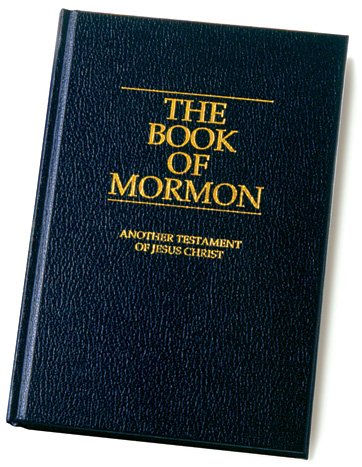This series has been cross posted from Straight and Narrow Blog
Book II: What Christians Believe
This second section is really the heart of his writing, although there is so much more to go. He gets right to the point of what sets a Christian apart from other religions. In many ways it is the closest a Mormon could agree with his theological musings. This is only natural since Mormons are Christians in many of the ways that C.S. Lewis perceives of what makes the religion important. There is, of course, points where he both goes against or merely anticipates Mormon doctrine or fails logical conclusions.
His idea of Christian theology hinges on the familiar Mormon concept of free will. The whole point of Salvation for a Christian is that humanity is free to choose faith in God and Christ. Although the subject of the end times when Christ will return is at the end of the section, it represents most of what he is saying. With all the evil in the world there is an objection of why God simply doesn’t “invade” earth to make things better. If God were to do that, there wouldn’t be a point to living. All the hard choices that lead to freely accepting or rejecting God would be over. It might end the horror in the world, but it would also end personal and human progress:
When the author walks on to the stage the play is over. God is going to invade, all right: but what is the good of saying you are on His side then, when you see the whole natural universe melting away like a dream and something else – something it never entered your head to conceive – comes crashing in; something so beautiful to some of us and so terrible to others that none of us will have any choice left? (pg. 65).
Of course, this begs the question of what the free will is choosing. The answer is simple; good and evil. C.S. Lewis had already touched on what good and evil is in the first section. He will go into more detail in the third section when he talks about Christian morality.


 Picture this scenario: You’re in Sunday School, and the teacher has just given a passionate lesson, full of scriptures and quotes from the prophet and personal testimony, about the importance of keeping the Sabbath day holy. Throughout the lesson, she repeatedly invites members of the class to think of ways they could do better at making the Sabbath a holy day for them and their family. At some point, towards the end of the lesson, someone raises their hand, and says something like this (probably in different words, but to the same effect): “This is all true, but we need to remember that we can’t run faster than we have strength. Also, we shouldn’t beat ourselves up if we aren’t perfect. God will accept us as we are, and we should remember that. Let’s remember that most of us are probably doing alright.”
Picture this scenario: You’re in Sunday School, and the teacher has just given a passionate lesson, full of scriptures and quotes from the prophet and personal testimony, about the importance of keeping the Sabbath day holy. Throughout the lesson, she repeatedly invites members of the class to think of ways they could do better at making the Sabbath a holy day for them and their family. At some point, towards the end of the lesson, someone raises their hand, and says something like this (probably in different words, but to the same effect): “This is all true, but we need to remember that we can’t run faster than we have strength. Also, we shouldn’t beat ourselves up if we aren’t perfect. God will accept us as we are, and we should remember that. Let’s remember that most of us are probably doing alright.”